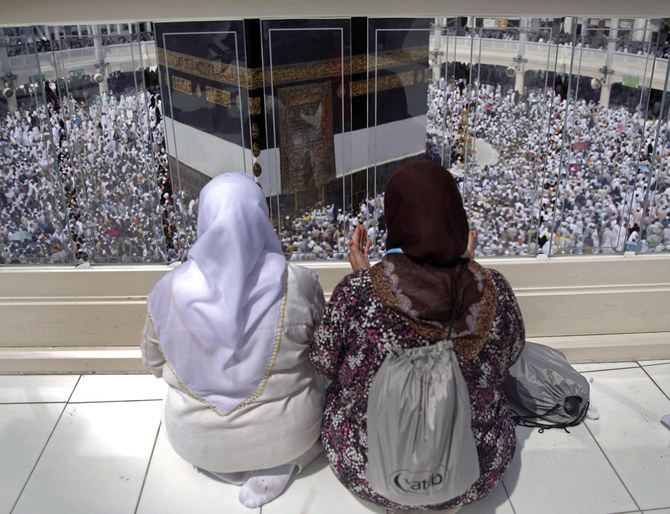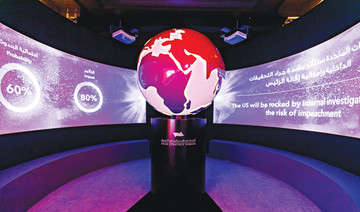DUBAI: The Arab world remains religious, with 72 percent of Arab respondents in a YouGov survey saying that their country is deeply religious or somewhat religious, and 66 percent classing themselves as actively practicing their religion.
In its partnership with the Arab Strategy Forum, Arab News commissioned the survey to gauge the views and concerns of Arabs today and their projections for the future of the region.
A total of 3,079 Arabic speakers aged 18 or above, residing across 18 countries of the Middle East and North Africa (MENA), were interviewed for the study.
The highest numbers of respondents asserting that their home country is very religious or somewhat religious were to be found in Yemen (84 percent) and Sudan (84 percent).
Dr. Abdulkhaleq Abdulla, former chairman of the Arab Council for Social Sciences, says the combined average of 72 percent is surprising as “you would expect, in a place like the Arab world, where religion is deeply rooted, that you would see more than 72 percent of people say religion is here to stay. I expected that from 90 percent of the people.”
Commenting on the other 28 percent who did not think their home country is very religious or somewhat religious, he said it is a significant number, indicative possibly of a millennial generation that is becoming more global, more tolerant, more open and probably as religious as the older generation but “they don’t see things only through the prism of religion.”
#ArabStrategyForum: A majority of Iraqis and Lebanese believe religion is affecting their government's political decisions, and that separation of religion and politics would lead to less wars, suggests a YouGov pan-Arab poll. Watch the video for more of the survey results. pic.twitter.com/pPkHwcpB60
— Arab News (@arabnews) December 9, 2019
Overall, religion was viewed by a majority of Arabs as providing a moral compass, with 62 percent believing their countries need religious laws to maintain moral standards.
For his part, Dr. Albadr Al-Shateri, politics professor at the National Defense College, Abu Dhabi, said the MENA region has to chart its own course; it cannot, and should not, import models from other areas. “Islam will remain part and parcel of the identity of the region,” he said.
“A complete divorce with religion is not only impossible, but it is not desirable. Societies derive their morals and bearings from their culture and heritage.”
What the region needs, he believes, is a civil state and a religious society. “In other words, the state remains neutral on religious faith, but society assumes the role of the guardian of religion.”
“We need to protect religion from politics. Society can manage its religious affairs and government can lend a hand but should not allow itself to be mired in theology or theocracy. This is not a separation of religion and state. This is a separation of functions of different institutions: one government and the other societal.”
Mark Katz, who teaches government and politics at George Mason University in the US state of Virginia, says the figures suggest that Arabs still look to their religion for guidance, but they are now more skeptical about whether those parties that claim to be guided by religion actually are, or whether those parties’ interpretation of religion is correct.
Secularization is seen from the YouGov study as having a potentially negative impact on respondents’ home countries, according to 37 percent of polled Arabs, especially in stable countries where religion is not fused with politics.
Some of the countries with the highest numbers saying that secularization will have a negative impact over the next 10 years include Algeria, Egypt, Jordan, Kuwait, Libya and Qatar, as well as Tunisia and Yemen.
However, a combined average of 32 percent expressed neutrality on secularization or saw it has having a positive impact over the next 10 years. “They think of it in a positive light, which is very interesting, coming from cases like Iraq and Lebanon,” said Abdulla.
“It’s great news for secularization. It always had a bad perception, but now only 37 percent see it in a negative way … which is great because we’ve had enough of extremism.”
Abdulla says the numbers are perhaps a reflection of a changing world where diversity is welcomed. “We need to get over this negative perception of secularization, which completely misreads and misunderstands what it is all about,” he said.
“In Europe, in the West, as well as in Japan and South Korea, the concept has been a pillar of progress, advancement, prosperity and stability.”
Abdulla sees the figures as a change from the overwhelming negative perception of secularization that has been around for decades in the Arab world.
Looking at the figures, Nadim Shehadi, an associate fellow at Chatham House, says regional countries where secularism was imposed have the most pervasive presence of religious extremism.
“From the 1920s to the 1940s, there were liberal societies and governments in Iraq, Egypt, Syria and everywhere,” he said. “From the late 1940s and early 1950s onwards, a brutal kind of secularism was imposed on these countries, a sort of secular nationalism, including the Baath party and Nasserism, and this is when you see, historically, the rise of religious extremism.”
He says secular states and institutions that suppress a religious society will produce extremism, which has been witnessed in Turkey, once a model of secularism but where Islamists are now in control.
However, he said secularization is changing, if the protests in the MENA region are any guide. “It’s a good thing overall,” he told Arab News.
“It’s a deep cultural change and a generational change, although I don’t know where it is going. But it expresses the dissatisfaction with the current order. It may lead to something worse but only time will tell.”


























